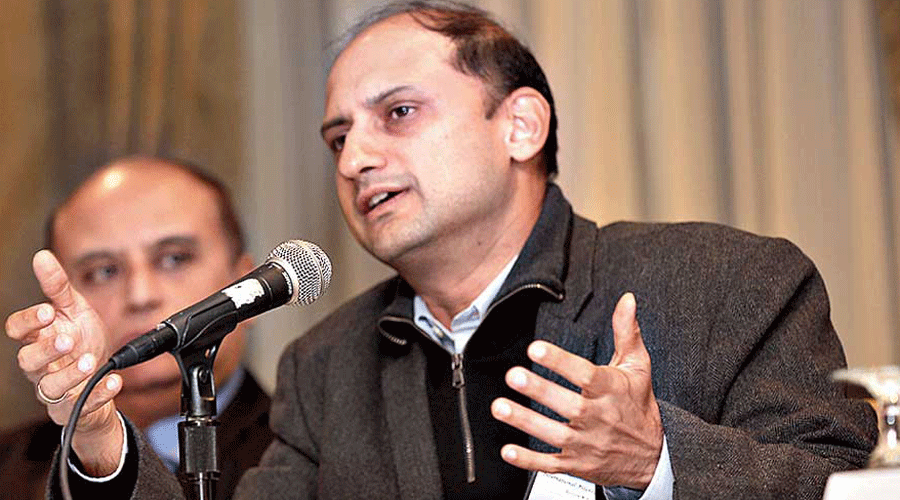The economic research wing of the SBI has joined issue with former RBI deputy governor Viral Acharya by contesting his claim that the concentration of economic and pricing power in India’s biggest conglomerates was responsible for high and persistent core inflation in the country.
The latest issue of SBI’s Ecowrap says it is “incorrect to infer that concentration of power dictated pricing capacity of firms and thus resulting in unyielding core inflation”.
The report arrived at this conclusion after undertaking an analysis of seven sectors — telecom, FMCG, two-wheelers, passenger vehicles, retail trade, steel and basic metals.
The report authored by SBI group chief economic advisor Soumya Kanti Ghosh creates a CPI Industrial Concentration Index for January 2015 and March 2023 — which shows that the estimated concentration CPI is consistently less than the core CPI since January 2015.
The paper stated that for a brief period beginning January 2020 till November 2020, and also during the pandemic period, as supply disruption weighed heavily, the estimated concentration CPI was higher than the core CPI.
“The findings suggest that the increase in prices during the pandemic was more on account of supply chain and logistical disruptions caused by the pandemic and after the war in Ukraine rather than firms increasing prices because of higher pricing power. It is thus incorrect to infer that industrial concentration dictated the pricing capacity of firms,” the report said.
Viral Acharya in his paper had said the limited impact of input price decline is a reason behind the rising persistence of core inflation.
This may be due to greater pricing power in increasingly concentrated industrial organisation structures.
“What lends some credibility to this thesis is the observation that in contrast to the rest of the world, India’s core inflation is rising more in goods, where its industrial sectors are increasingly concentrated than in services, though there are early signs of pricing power rising in the services sector too,” said Acharya.











